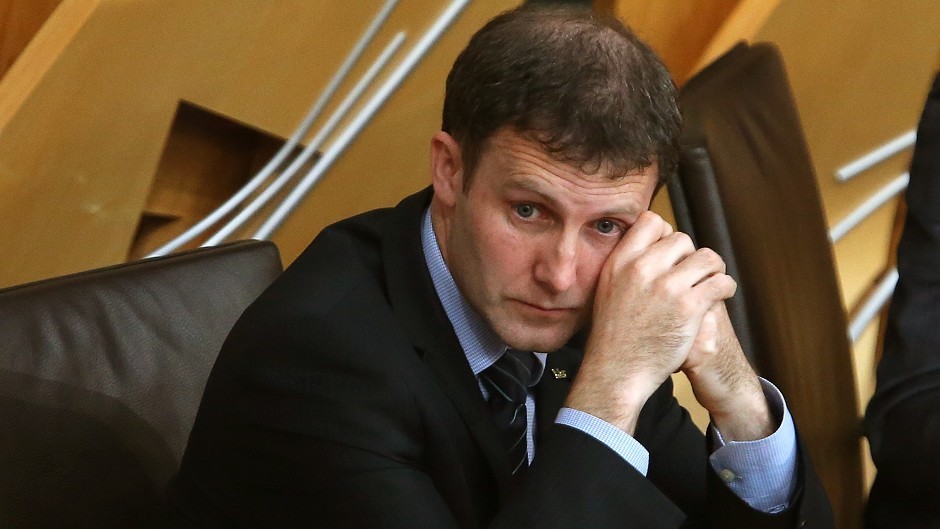The Scottish Government has announced it will postpone the closure of the Aberdeen and Inverness police call centres after a report found staff were facing “unacceptably high” pressures.
Justice Secretary Michael Matheson also revealed Police Scotland is to receive £1.4million for recruitment as he apologised for the circumstances surrounding the M9 tragedy in July.
The force came under intense criticism after the deaths of John Yuill and Lamara Bell, who lay undiscovered in a car wreck for three days despite a sighting of the vehicle being reported via the 101 line.
In the aftermath, Mr Matheson instructed watchdog HM Inspectorate of Constabulary in Scotland (HMICS) to examine call handling. The interim findings were published yesterday ahead of full conclusions, due to be released at the end of next month.
In its report, HMICS recommended the Aberdeen and Inverness call centres be kept fully staffed until the new combined north area control room in Dundee is fully operational.
The report also found the practice of diverting overflow calls to the central belt was creating additional risk to the public.
Hours after its publication, Mr Matheson addressed MSPs on the numerous controversies that have plagued the force during Holyrood’s summer recess.
Last week Chief Constable Sir Stephen House announced he would stand down earlier than expected, following sustained public and political criticism over stop and search, call centre failings, armed police, allegations of centralisation and an £11million budget shortfall.
Mr Matheson pledged to keep the Dundee, Aberdeen and Inverness control centres open until Govan and Bilston Glen have a full complement of trained staff and working systems, and the new area control-room in Dundee is fully up and running.
To do so, he said, would require the accelerated recruitment of 70 to 75 call handling staff to consolidate service centre operations, plus additional area control room staff.
He also confirmed the funding would support the retention of staff in Aberdeen and Inverness for a period beyond March 31 2016 to allow for an effective handover of operations, subject to discussions with unions and workers.
He continued: “The M9 incident had terrible consequences and I do not want any family to go through that experience again.”
The remaining phases of the control room reform programme “will only proceed once the Scottish Police Authority and HMICS are completely reassured that all these issues have been addressed”, he insisted.
A second independent report from the Stop and Search Advisory Group, which recommended the force end the tactic of
consensual stop and search, also came out yesterday.
“Non-statutory stop and search lacks any legal framework and is of questionable lawfulness and legitimacy, with poor accountability,” it concluded.
The group, chaired by solicitor advocate John Scott QC, recommended a code of practice backed by law to cover stop and
search be developed and made subject to frequent review.
Mr Matheson confirmed this would be introduced and said the consultation on it would begin shortly.
It will also examine whether the police should have the power to search children under 18 for alcohol, he said, adding the group would remain in place to advise on the final version of the code.
“The current system of consensual stop and search will end once that code comes into effect,” the justice secretary added.
Elsewhere in the statement, he promised to strengthen police scrutiny, urged public authorities to comply with the law amid allegations of police spying on journalists, and said an investigation into the death in custody of Sheku Bayoh was “well advanced”.
He also announced the appointment of Andrew Flanagan, former chief executive of the NSPCC, as the new chairman of the SPA in which role he will undertake an immediate review of police governance.
